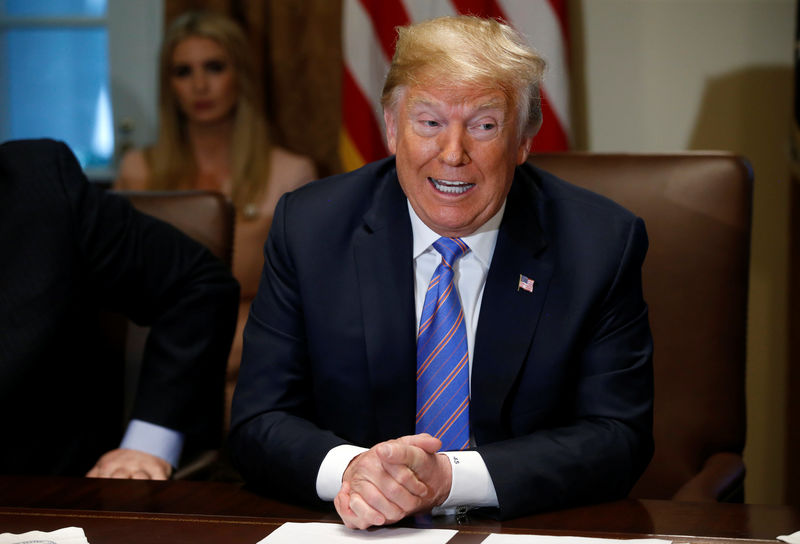By Susan Heavey and Lindsay Dunsmuir
WASHINGTON (Reuters) - U.S. President Donald Trump on Friday dug in on his criticism of the Federal Reserve's policy on raising interest rates, saying it takes away from the United States' "big competitive edge."
Trump, in posts on Twitter, also lamented the strength of the U.S. dollar and accused the European Union and China of manipulating their currencies.
American presidents have rarely criticized the U.S. central bank in recent decades because the independence of the Fed is seen as important for economic stability.
Trump, however, has made reducing U.S. trade deficits a priority and the combination of rising interest rates and a strengthening dollar pose risks for export growth.
The president has raised tariffs on a host of imports, triggering retaliatory tariffs from key trade partners like China and the European Union.
"China, the European Union and others have been manipulating their currencies and interest rates lower, while the U.S. is raising rates while the dollars gets stronger and stronger with each passing day - taking away our big competitive edge," Trump wrote on Twitter. "As usual, not a level playing field."
After his posts, the U.S. dollar extended losses against the European Union's euro, the Chinese yuan and Japanese yen. [nL1N1UG0MI]
The Fed's Board of Governors declined to comment. The Fed has been raising rates since 2015 and has already hiked them five times since Trump took office in January 2017.
Fed Chairman Jerome Powell, who Trump named to lead the U.S. central bank, said earlier this month he was not concerned about pressure from U.S. politicians.
"We don't take political considerations into account," he told radio program Marketplace.
The U.S. central bank last raised borrowing costs in June, and in an address to Congress this week Powell repeated his view that rates would keep rising slowly now that the unemployment rate was at the lowest level since the 1960s and inflation was rising.
Most economists believe the current economic climate, with the nation's unemployment at historic lows and inflation at the Fed's 2 percent target, justify recent rate rises and a strong U.S. dollar.
Trump had already criticized the Fed's interest rate policy in an interview on CNBC on Thursday, saying he was concerned higher rates could impact the U.S. economy.
St. Louis Federal Reserve Bank President James Bullard said Trump's comments would have no bearing on interest rate decisions, which are made by a committee made up of government officials and the presidents of privately owned regional Federal Reserve banks. The committee is mandated by the U.S. Congress to foster a strong job market and stable prices.

"People can comment, including the president and other politicians," said Bullard, who does not have a vote on monetary policy this year but participates in committee discussions. "But it's up to the committee to try to take the best action we can."